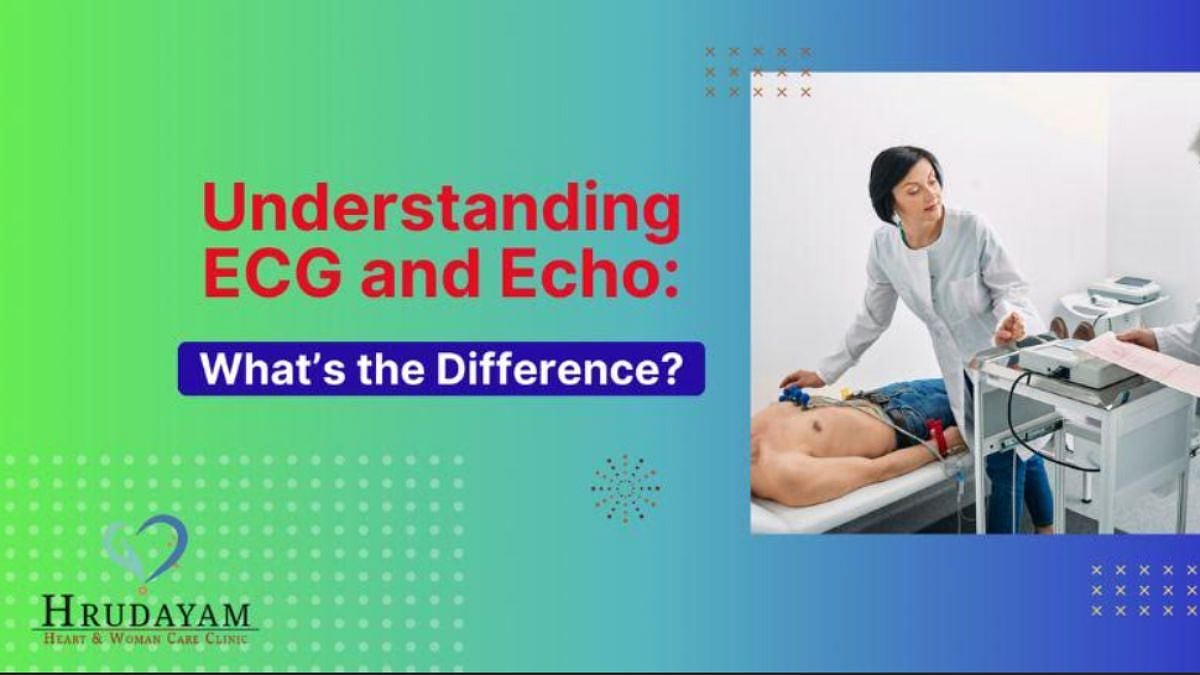Nagpur: Your heart is one of the most important organs in your body, and keeping it healthy is crucial. Your doctor may recommend tests like an ECG or an Echo when something feels off. But what do these tests do? Many people get confused between the two because both are used to check the heart. However, they work in different ways and help doctors diagnose different conditions. Understanding the difference between ECG and Echo can help you feel more at ease before your test. Let’s break it down in simple terms so you can know what to expect.
What is an ECG?
ECG stands for Electrocardiogram. It’s a quick and painless test that checks the electrical activity of your heart. Small sensors (electrodes) are placed on your chest, arms, and legs. These sensors pick up electrical signals from your heart and show them as a graph.
Doctors use an ECG to find heart problems like irregular heartbeats, heart attacks, and other issues. It’s a simple test that only takes a few minutes, and you don’t need any special preparation for it.
What is an Echo?
Echo is short for Echocardiogram. It is an ultrasound of your heart. Just like a pregnancy ultrasound, a gel is applied to your chest, and a device called a transducer sends sound waves into your heart. These waves create live images of your heart on a screen.
Doctors use an Echo to check your heart’s structure, valves, and blood flow. It helps detect conditions like heart defects, valve problems, or heart muscle issues. Unlike an ECG, which looks at the heart’s electrical activity, an Echo looks at the heart’s actual movement and function.
The Difference Between ECG and Echo
Now that you know what ECG and Echo are, let’s compare them in simple words. An ECG checks how your heart beats by recording its electrical signals. It’s mostly used to find irregular heartbeats or heart attacks. An Echo, on the other hand, creates images of your heart and shows how it moves. It helps doctors see if there are problems with your heart’s valves, muscles, or blood flow.
ECG is a quicker test, usually done in a few minutes, while an Echo takes a little longer—anywhere from 15 to 45 minutes. Both tests are painless, but they serve different purposes. Your doctor will decide which one is right for you based on your symptoms.
How to Prepare for an ECG Test
Getting an ECG? No worries! It’s one of the easiest medical tests you can have. Here’s how to prepare for an ECG test:
1. Wear loose clothing – You may need to remove your shirt for the electrodes to be placed on your chest.
2. Avoid lotions and oils – These can prevent the electrodes from sticking properly.
3. Stay relaxed – Stress or anxiety can affect your heart rate and give an inaccurate reading.
4. Tell your doctor about medications – Some medicines can affect ECG results, so let your doctor know what you’re taking.
5. Avoid heavy meals and caffeine – These can sometimes change your heart’s rhythm temporarily.
That’s it! Once you lie down and the electrodes are placed, the test is over in a few minutes.
Why Dr. Chetan Rathi is the Best Choice for Your Heart Health
When it comes to heart care, choosing the right doctor is important. Dr. Chetan Rathi is one of the best heart specialists. With years of experience and a patient-first approach, he ensures you get the right diagnosis and treatment. Whether you need an ECG, Echo, or further heart care, Dr. Chetan Rathi provides expert guidance and care to keep your heart healthy.
Final Thoughts
Understanding the difference between ECG and Echo helps you feel more confident about your health. Both tests are painless, quick, and useful in detecting heart issues. If you’re getting an ECG, preparing for it is simple—just follow a few easy steps to ensure accurate results. And if you need expert heart care, Dr. Chetan Rathi is the one to trust.
Taking care of your heart is important. So, if you ever feel chest pain, dizziness, or irregular heartbeats, don’t wait. Get checked and stay heart-healthy!
